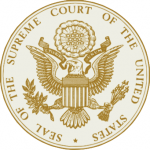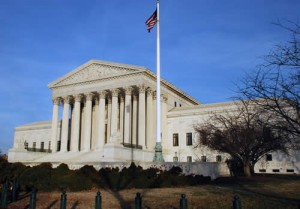Supreme Court Hears Oral Argument in Nken v. Filip, on Question of Standard of Review for Stays of Removal Pending Appeal
Yesterday the Supreme Court heard the argument in Nken v. Filip (formerly Nken v. Mukasey), which asks whether an alien who seeks a stay of deportation pending appeal must prove by clear and convincing evidence that his deportation is prohibited by law. The majority of courts have held that the ordinary standard for stays pending appeal continues to apply to such stays despite Congress’s enactment in 1996 of legislation providing that “no court shall enjoin the removal of any alien pursuant to a final order under this section unless the alien shows by clear and convincing evidence that the entry or execution of such order is prohibited as a matter of law,”8 U.S.C. sec. 1252(f)(2).
The question is especially important in cases like Mr. Nken’s, in which the alien’s underlying claim is that he will suffer severe persecution or even death if returned to his country. If such aliens must demonstrate their right to stay by clear and convincing evidence, i.e., more than a preponderance of the evidence, to obtain a stay, then the expected result would be that some aliens with valid claims would be returned to their home countries and possibly subject to persecution before having the chance to have their appeals decided on the merits.


